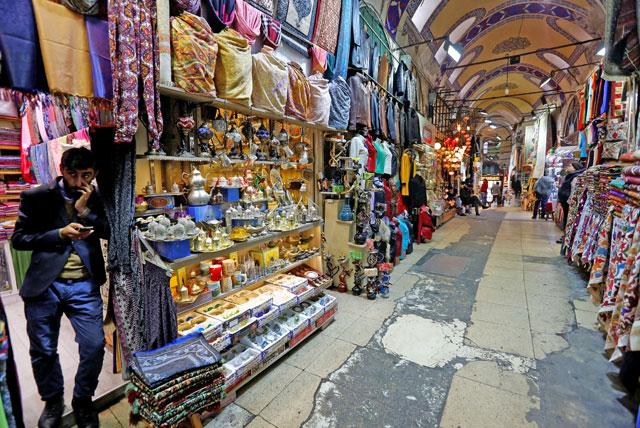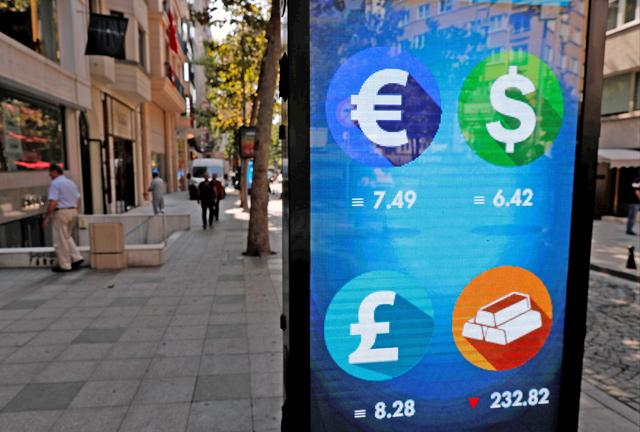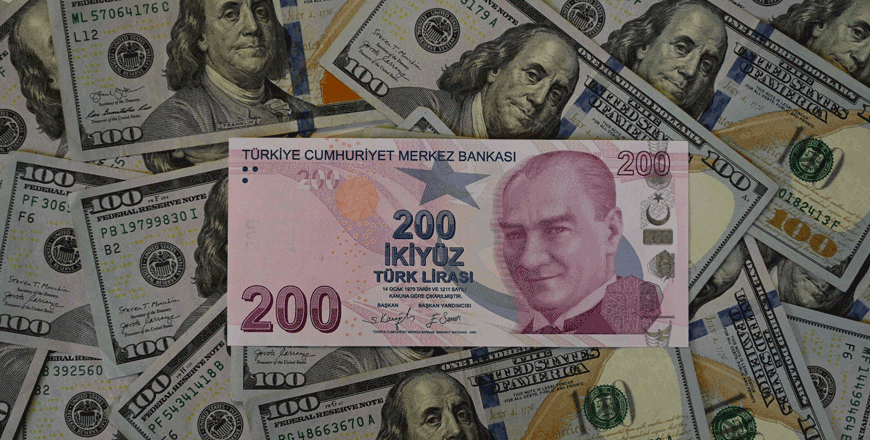You are here
Crumbling lira pressures Turkish retailers as economy slows
By Reuters - Jan 22,2017 - Last updated at Jan 22,2017

Merchants wait for customers at the historical Grand Bazaar, known as the Covered Bazaar, in Istanbul, Turkey, on January 12 (Reuters photo)
ISTANBUL — Turkish businessman Tekin Acar had contracts to open branches of his leading cosmetics chain in ten new shopping malls this year. A few days ago he cancelled nine of them after sharp falls in the lira meant he would struggle to afford the rents.
Turkey's currency has lost around a quarter of its value since the middle of last year, causing havoc for retailers selling imported goods or paying rent pegged to the US dollar.
Many have already been suffering from a sharp economic slowdown and dwindling tourism numbers after a spate of deadly bombings.
Foreign brands in Turkey are also suffering. Dutch clothing chain C&A, Britain's Topshop, German cosmetics firm Douglas and US-based dietary supplement retailer GNC have disappeared from shopping centres in recent months.
Retail spaces in some of Istanbul's biggest malls stand empty.
"Since many brands have closed up stores one by one, people don't notice it," said Acar, who founded the cosmetics chain that bears his name in 1979 and has 76 stores across Turkey.
"In my 46-year career, it's the first time I'm having trouble paying my rent, utilities and salaries. I've put all my income from other businesses into this, I've increased capital but it isn't enough. I'm not George Soros, this is it for me."
Hundreds of malls sprung up across Turkey in the past two decades, symbols of the rapid consumption-led growth that helped build President Recep Tayyip Erdogan's reputation when he was prime minister from 2003-2014.
But that growth has left structural weaknesses in the economy, and the suffering retail sector and wider economic malaise come at an awkward time for Erdogan. He is expected to seek popular support in a spring referendum for bolstering the powers of his office and can ill-afford a sharp slowdown.
Acar's business has been further hit by a hike last week in import taxes on some cosmetics and by restrictions on the products for which credit card payments can be taken in installments, part of a drive to boost Turkey's savings rate.
Many of the new malls were financed with dollar and euro loans and their owners, who have seen their debt burden rise as the lira fell, charge rent in hard currency to offset the risk.
The payback period for shopping mall developers in Istanbul has risen in recent years to an average of 22 years from 15-16, largely due to exchange rate risk and uncertainty about rental incomes, according to Hulusi Belgu, head of the Turkish Council of Shopping Centres (AYD).
His association estimates that $53 billion has been invested in the country's 377 shopping malls over the past few decades, 70 per cent of it financed through debt, much of it dollar and euro-denominated.
There was "constant demand" from retailers to seek rent reductions because of the weaker lira, Belgu told Reuters, and mall developers — despite their own financial pressures — were having to do their best to help.
"In the end, the mall investors look at the rent to turnover ratios and act accordingly. We pull the rents to healthy ratios that allow [the retailers] to survive," he said.
Falling confidence
The lira has fallen as much as 10 per cent against the dollar since the start of 2017, making it the world's worst performing major currency. That comes on top of double-digit falls both last year and the year before.
Erdogan has urged Turks to sell dollars to prop up the lira, calling for a "sense of national mobilisation", while the central bank has taken steps to tighten lira liquidity.
Financial market investors say only a sharp interest rate hike when the central bank meets on January 24 will put a floor under the lira's losses, although Erdogan has long been opposed to such a move, fearing it will further slow growth.
The lira's fall has been a major blow to middle-class Turks, for whom life is largely dollar-denominated. Fuel prices and private school fees, clothing and electronics have all risen in price with the lira's decline, denting consumer sentiment.
Economic growth in the third quarter, the latest data available, turned negative for the first time in seven years and is forecast at just 3.2 per cent for 2016, a far cry from the high single-digit rates on which Erdogan built his reputation as prime minister from 2003-14.
"It's crucial for retailers to reduce the cost of rent during tumultuous times as the decline in sales puts a stress on our financials and rent is among the largest fixed costs for our sector," said Ahmet Can Tarkan, head of Dilasima Group, a boutique fashion retailer.
Dilasima, which operates 43 stores in five cities, imports Italian brands including MaxMara, Furla and Marella, meaning its cost of goods has risen in lira terms, as well as its rents.
"We try not to reflect small appreciations in foreign currencies onto prices but we can only absorb increases up to 5 per cent," he said. "We need to be able to replace our goods with new merchandise every 6 months, so we do push up prices when the appreciation is higher than 5 per cent."
For more affordable brands, passing on the rising costs to more price-sensitive consumers is far harder.
C&A sold its stores to DeFacto, a Turkish retailer, last June amid what it described as "challenging" market conditions.
Topshop said it had closed its physical stores in Turkey due to lease expirations, but was servicing the market online and was looking for new sites. Parent company Arcadia Group, which also owns brands including Dorothy Perkins and Miss Selfridge, is still active in Turkey.
GNC said in October it had closed 85 stores in the country, while Douglas, which first opened in Turkey in 2006, said it closed its 11 stores the same month. A Douglas spokeswoman said the company withdrew because it did not expect its small market share to show a major improvement "in the foreseeable future".
Despite being at loggerheads over rent, what mall developers and retailers do agree on is that the lira's volatility, rather than its weakness alone, is the biggest challenge.
"In the long term, we're more concerned about consumer morale than the appreciation in foreign currencies. The consumer will be willing to pay a higher price in lira terms if they feel confident about the state of Turkish economy," Tarkan said.
"Stability in foreign exchange rates is key to creating that confidence among consumers."
Related Articles
ANKARA — Turkey raised natural gas prices on Saturday by as much as 14 per cent, two sources said, while the energy regulator announced a si
ANKARA — Turkish President Recep Tayyip Erdogan on Wednesday publically defended himself for the first time against charges that he oversaw
ISTANBUL — The Turkish lira sank to a new low against the dollar on Wednesday, more than a week after the reelection of President Recep Tayy
















